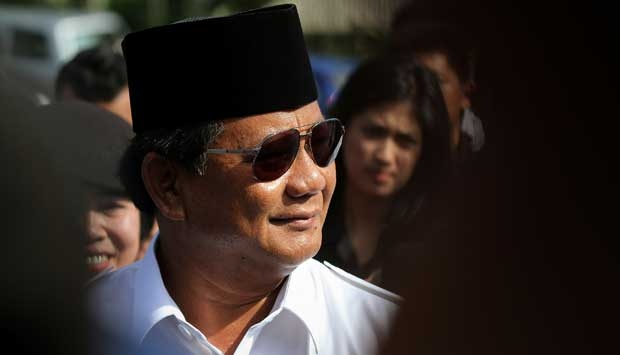Defective Vision
Translator
Editor
Kamis, 1 Mei 2014 05:26 WIB

TEMPO.CO, Jakarta - All the recent noise over setting up coalitions has tended to overlook one glaring question: will the public ever get to know the ideas and the concept of a presidential candidate? Political parties who have their candidates in hand, are busy seeking the right parties to ally themselves with. But they tend to neglect what goes on in the mind of a candidate. Everyone knows who Joko Widodo is, or even Aburizal Bakrie, but not many people know what their vision and mission may be if they get to be elected president. We are left to probe and guess what the 'political' cat in the sack, or what kind of president we are likely to get.
Long before the legislative elections, the Gerindra Party and its presidential nominee, Prabowo Subianto, had issued a 'Manifesto of Struggle' about 50-pages thick. It covers a wide range of topics starting from the economy, law enforcement, human rights to international relations and the farmers' welfare.
From this manifesto, Gerindra invites the public to see what kind of Indonesia the party will build. One topic which gained much traction recently has to do with the need for a human rights court, and whether such a thing would be excessive.
Prabowo's record shows he was involved in the kidnapping of a number of democracy activists in 1997. He has never been tried for this crime. He was only discharged by the Indonesian Military (TNI). So, wouldn't that manifesto indicate, that if Prabowo were to become president, that he will reject any cases involving human rights violation? Yet, the closure of human rights cases is one of the biggest outstanding issues that must be faced by the leaders of this republic since reforms began 16 years ago. Such unfinished agenda include the massacres of 1965, to the mysterious killings, the Tanjung Priok violence, the assassination of activist Munir, the Semanggi tragedy and the kidnappings of the activists. Should we therefore conclude that in a Prabowo-led era, these unresolved cases will be shunted aside and forgotten?
Then, the views of Gerindra and Prabowo on religion also merits some scrutiny. The manifesto says, "The state is called upon to guarantee the purity of the instruction of those religions recognized by the state, by ensuring their teachings are not tainted or deviate."
The big question is, what is meant by 'penista' (deviate) and deviation of religious instruction? Does the state have the right to determine when a religion has been 'humiliated'? When discrimination continues to beset followers of Ahmadiyah and the Shia, those questions take on special importance. Does this mean that if Prabowo becomes president, he will choose to continue such discrimination?
Part of the answer to the question was reported in Twitter, a channel of Prabowo's and Gerindra's campaigning. One Twitter user asked: will followers of the Ahmadiyah, Shia, Mormons and Jehovah's Witnesses be embraced or sidelined? Admin@Gerindra, the party's official account responded: "All Indonesian citizens must be protected. If they stand on the wrong path, we will create an institution to make them 'jera' [wary]."
Even though that response was later corrected by saying that the word jera was not meant in the negative sense, the phrase 'to make them jera' clearly opposes the Constitution. In Article 29, Chapter 2 of our basic law it says, "the State guarantees the freedom of every citizen to follow the religion of his or her choice and to worship according to their respective religion and faith."
Whatever happens, the steps taken by Gerindra and Prabowo to disseminate their vision and mission deserve appreciation. Whether we agree or not with them, is another question. At least, from that manifesto we have an idea of what kind of president he is likely to be if he wins the elections in July. (*)
Read the full story in this week's edition of Tempo English Magazine



















